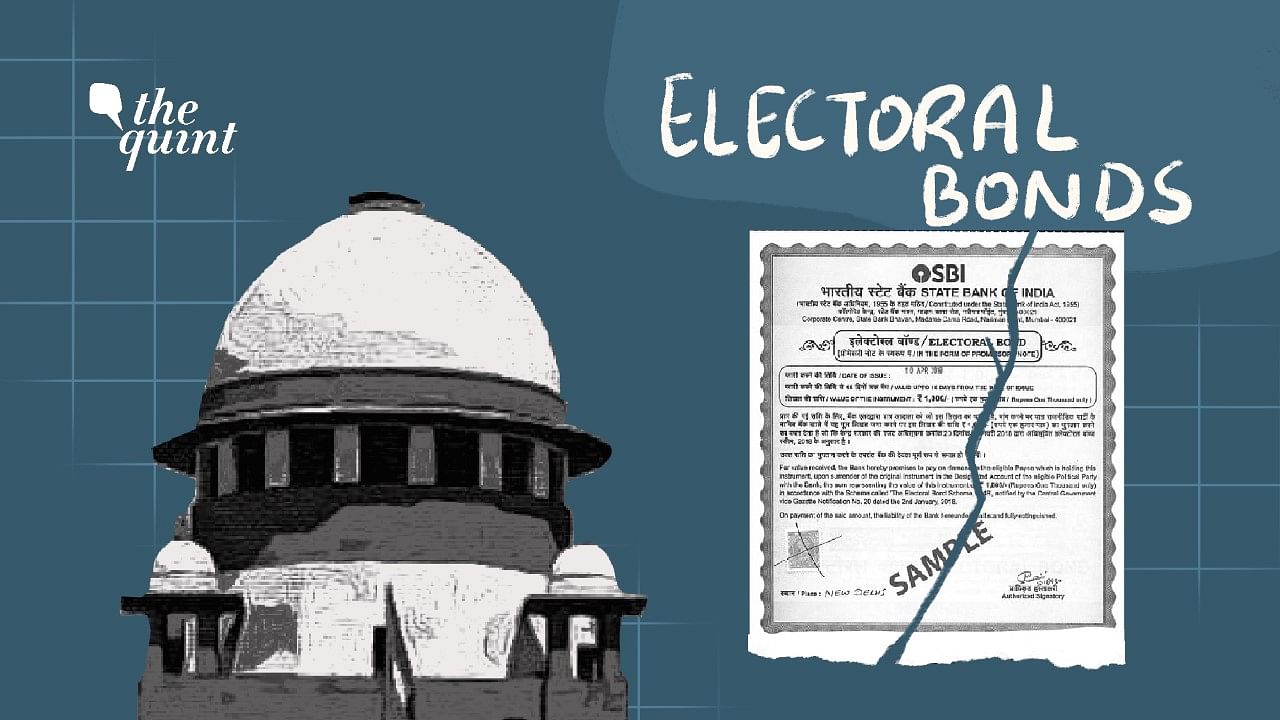
Image Source: thequint
In a significant development, the Chief Justice of India (CJI) has constituted a five-judge bench to hear the electoral bonds case. The bench will be headed by the CJI himself and will include four other judges of the Supreme Court. The decision to form a larger bench for this case demonstrates its importance and the need for a detailed examination of the matter.
Background
Electoral bonds were introduced in 2018 by the government of India as a means to promote transparency in political funding. These bonds are financial instruments that citizens or corporate entities can purchase from specified branches of State Bank of India (SBI) and then donate to a political party of their choice.
One of the arguments in favor of electoral bonds is that they enable individuals to make political donations without disclosing their identities publicly, which leads to a reduction in the fear of retribution. However, critics argue that this anonymity encourages the flow of black money into politics and undermines transparency in the electoral process.
The Case
The electoral bonds case has been brought before the Supreme Court by several petitioners who have raised concerns about the impact of these bonds on the democratic process and the transparency of political funding. The case raises important questions about the constitutional validity of electoral bonds and their compliance with existing electoral laws.
The primary arguments put forth by the petitioners revolve around the following points:
- Transparency: The lack of disclosure requirements for donations received through electoral bonds is seen as a threat to transparency in the political funding process. The petitioners argue that this opacity may lead to an increase in illegal funding and corruption.
- Constitutionality: The petitioners question the constitutional validity of electoral bonds, stating that they violate the principle of equality enshrined in the Constitution. They argue that the bonds favor the ruling political party by providing an avenue for undisclosed funding, thus creating an uneven playing field for political competition.
- Impact on Democracy: Another key concern raised by the petitioners is the potential impact of electoral bonds on the ability of citizens to make informed choices during elections. With undisclosed funding, voters may not have access to crucial information about the financial backing of political parties and candidates.
Importance of the Case
The electoral bonds case holds immense significance for the Indian democracy. The outcome of this case will determine the future of political funding in the country and it will shape the level of transparency and accountability in the electoral process.
If the Supreme Court upholds the validity of electoral bonds, it will establish a precedent that may have far-reaching consequences for the funding mechanisms of political parties. On the other hand, if the court declares electoral bonds unconstitutional, it might lead to a reevaluation and potential reform of the existing political financing system.
The Role of the CJI
The decision to assign a Chief Justice of India to head the five-judge bench for the electoral bonds case showcases its importance and complexity. As the head of the judiciary, the CJI carries immense responsibility in ensuring a fair and unbiased hearing of the case while upholding the principles of justice.
The CJI, as the leader of the bench, will be responsible for organizing and conducting the proceedings of the case. The judge will also play a crucial role in analyzing the arguments put forward by the petitioners and the respondents, and arriving at a well-reasoned judgment.
Timeline and Expectations
The electoral bonds case is expected to be heard by the five-judge bench in the coming months. Given the complexity of the issues involved and the significance of the matter, it is likely that the court will devote considerable time and effort to fully grasp the implications of electoral bonds.
As this case has the potential to impact the future of political funding, the public and various stakeholders are eagerly awaiting the judgment of the Supreme Court. The decision will not only influence the upcoming elections but also shape the democratic landscape of the country for years to come.
Conclusion
The formation of a five-judge bench, headed by the Chief Justice of India, to hear the electoral bonds case reflects the gravity of the matter and its significance in the context of Indian democracy. The case raises crucial questions about transparency, equality, and the functioning of our political system.
The forthcoming ruling of the Supreme Court on the constitutional validity of electoral bonds will have far-reaching consequences. It will determine the future direction of political funding in India and shape the transparency and accountability standards in our electoral process. As citizens, it is our responsibility to closely follow this case and engage in informed discussions about its impact on our democracy.